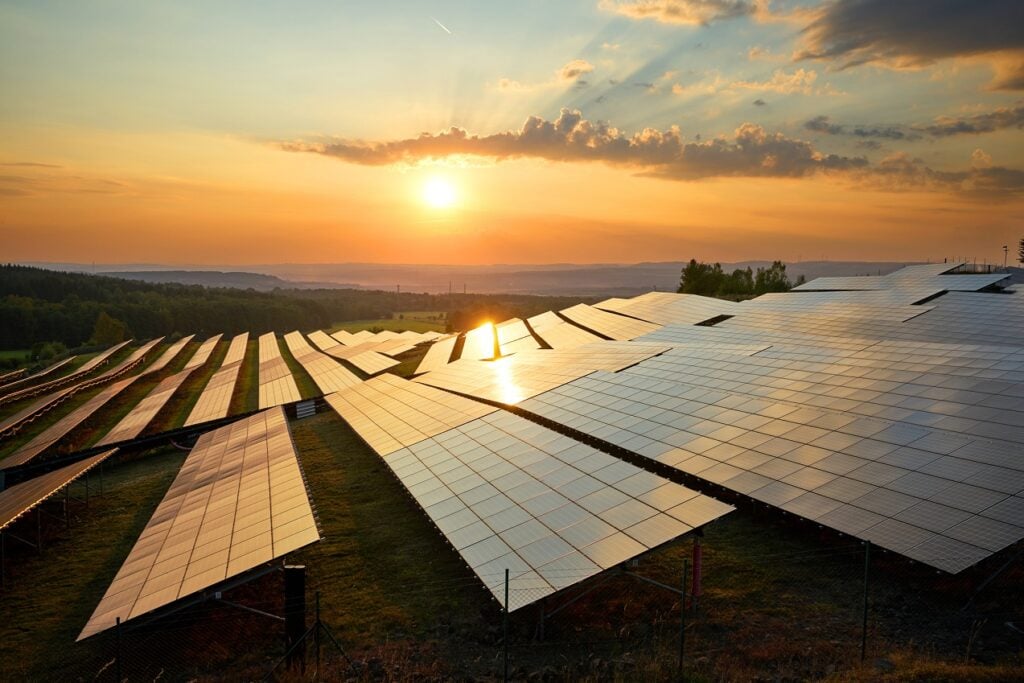New records for renewables generation were set in the UK throughout the second quarter of the year, with coal power also falling to historic lows.
The latest Digest of UK Energy Statistics (DUKES), released this morning by the Department for Business, Energy and Industrial Strategy (BEIS), showed that renewables provided almost one-third (31.7%) of total UK electricity generation in the three months running from April to June 2018.
This was aided significantly by record solar generation, which amounted to 4.65TWh, a figure which BEIS said was enough to power a million homes.
In total, renewable sources of power were responsible for 24.3TWh throughout the period, up 3% on the corresponding period in 2017.
And this was a significant factor in coal generation slumping to a record low of 1.6% of the UK’s total power mix.
BEIS trumpeted the statistics this afternoon: “We’ve hit another landmark record- with this summer’s intense sunshine generating enough solar power to fuel over a million homes. With less dirty coal being used than ever before, and plans underway to phase out coal power completely by 2025, our modern Industrial Strategy is supporting thousands of good jobs in new clean growth industries,” a spokesperson said.
Industry trade body Energy UK was also triumphant, arguing that the energy sector had made “huge advances” in decarbonising.
However Lawrence Slade, chief executive at Energy UK, had words of caution for the government.
“Maintaining investment in the sector with a long-term stable policy environment, is critical to fulfil our climate change ambition and decarbonise, a process which will not only create jobs and benefit the economy but also the environment.
“However, to do this at the lowest cost to consumers we must ensure that we are no longer excluding the lowest cost technologies from our energy mix.”
Support of established renewables technologies such as solar PV and onshore wind has been a point of contention as they remain locked out of forthcoming Contracts for Difference auctions, with the government yet to determine whether or not future auctions will allow them to return.
Meanwhile BEIS continues to assess the responses to two crucial calls for evidence which stand to shape the future of small-scale renewables policy in the country, with the government’s proposals to scrap the export tariff – which guarantees generators a payment per unit of renewable electricity exported to the national grid – widely criticised.
The statistics also come in the same week in which the Labour Party has outlined how it would look to significantly ramp up renewables deployment in the country out to 2030, desiring a near trebling of UK solar capacity and huge increases in both onshore and offshore wind.
The Conservative Party Conference commences this coming weekend, with chancellor Philip Hammond’s budget scheduled for 29 October 2018.






